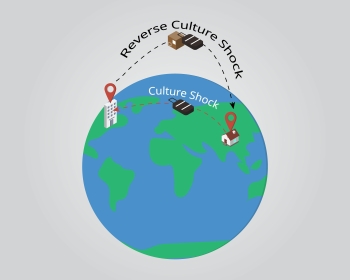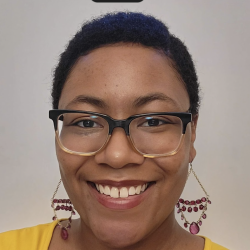
Returning from a foreign country after an extended period can feel very disorienting and isolating. There is a general understanding that entering into a new culture, learning a new language, and blending into a new community is difficult. However, it is sometimes much more difficult to leave that world and return to a place that should feel like home, but maybe no longer does. If you are in that boat, you may be experiencing reverse culture shock.
Those who have lived in a different culture know that the experiences shared and relationships formed can be life-changing. You have put your entire self into a new place, new people, foods, new daily rhythms, and maybe new work or activities. These experiences have likely changed you in ways both anticipated and unanticipated. When you return home, you return home a different person.
You have left behind a world that you worked hard to assimilate into, understand, and appreciate. And you have likely said goodbye to new friends who have become family. While your friends and family at home may be interested in seeing pictures and hearing stories, they cannot truly know the experience you had. Reverse culture shock can feel very isolating for this reason. Your heart may feel divided and long for the home you created while away, which can cause a very real sense of grief and loss. It will likely feel odd to enter back into the rhythms and cultural expectations you once adhered to, subconsciously or otherwise.
If you haven’t already, it may be helpful to reflect on your time and how/why it changed you. Get specific. Were there certain values that the foreign culture nurtured or encouraged, which feel absent or muted in your home culture? How can you weave those values into your life here? Are there ways you came alive while living abroad? How can you incorporate that same liveliness into life where you are? It may be difficult, because different places and cultures call forth different pieces of ourselves. However, it is possible to find ways to incorporate some of the traditions or rhythms you love about the foreign culture into your own daily life.
As an example, maybe you felt more connected to a community while abroad and that is something you would like to experience where you currently are. Here in the US, we can go very long periods of time without needing to see one another (the pandemic proved this to be true!) While away, you may have experienced a sense of community that was more seamlessly weaved into daily life. So how can you create or enter into a community here? Can you join a local food co-op or get involved with events in your neighborhood? Can you make friends with your neighbors in ways you hadn’t thought to do before? It’s going to take more effort, but once you have identified the values that you appreciated abroad, you can begin to seek them out right where you are. Or, maybe it means you have to make some big changes, like moving neighborhoods or switching jobs.
Here are some tips for navigating reverse culture shock:
Give yourself the space and time to grieve. It’s okay to treat this as a loss, because it is. How have you processed through grief in the past? Do you have a therapist, do you journal, play music, talk to friends? Explore what helps you grieve and allow yourself that process.
Identify the values and traditions you want to incorporate into your life.
Brainstorm with a therapist, a trusted friend, or yourself (via writing) your plan for incorporating those things
Place visual reminders (knick knacks, photos, fabrics, souvenirs, etc.) around your space to help you feel connected to your past.
Make a plan for a return visit if possible; having this in the books may make the transition a little less painful. Knowing that you can always return (if circumstances allow) will help it feel less like a compartmentalized experience and more woven into the fabric of your life.
Reverse culture shock can leave you feeling disoriented and stuck between two worlds, but it won’t feel like this forever! There are ways to honor where you’ve been by staying connected where you currently are. As you navigate through this unique season, don’t hesitate to reach out to a therapist who can walk you through the array of emotions you may be experiencing during this transition.












